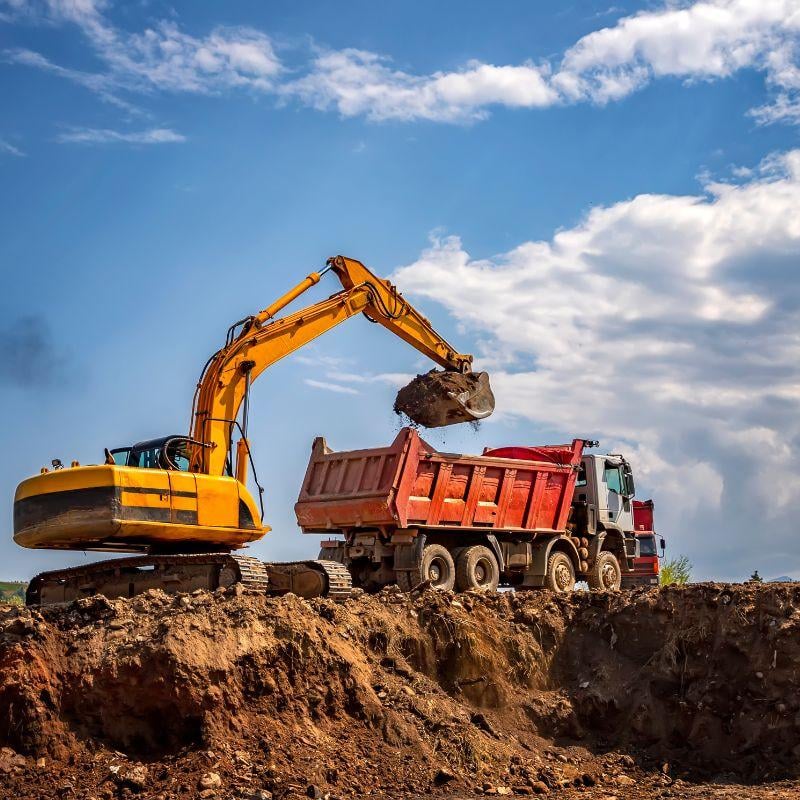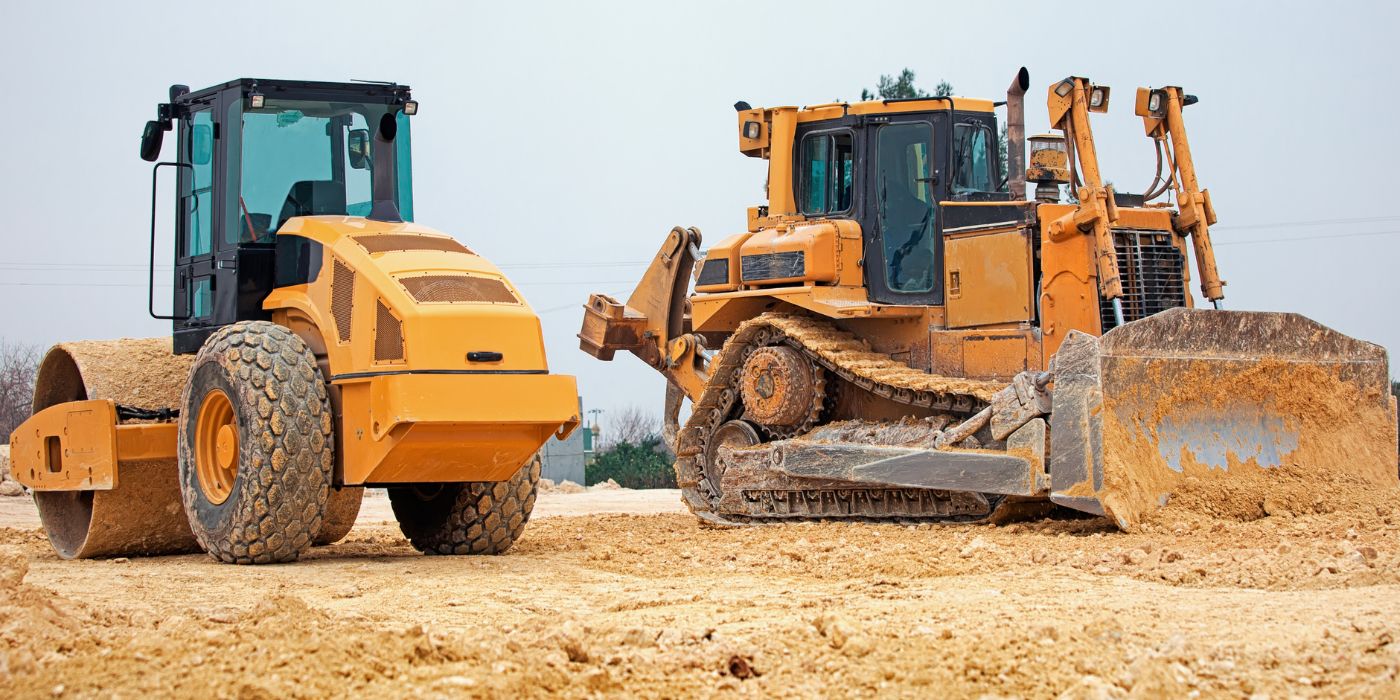Discovering the Financial Advantages of Renting Building And Construction Equipment Compared to Possessing It Long-Term
The choice in between possessing and leasing building devices is essential for financial management in the market. Renting out deals prompt cost financial savings and functional adaptability, permitting firms to allot sources much more successfully. In contrast, ownership features substantial long-lasting economic dedications, including maintenance and devaluation. As contractors consider these alternatives, the effect on capital, project timelines, and technology gain access to becomes significantly substantial. Recognizing these subtleties is necessary, particularly when taking into consideration how they line up with certain job needs and economic strategies. What elements should be prioritized to make sure optimal decision-making in this complex landscape?

Price Contrast: Renting Out Vs. Possessing
When examining the economic implications of owning versus renting building and construction devices, a detailed price contrast is necessary for making informed decisions. The selection in between leasing and possessing can considerably affect a firm's profits, and comprehending the associated prices is crucial.
Renting out building tools usually involves lower in advance expenses, permitting services to assign resources to various other operational needs. Rental contracts frequently include adaptable terms, enabling firms to accessibility progressed equipment without lasting commitments. This adaptability can be specifically advantageous for temporary jobs or changing workloads. However, rental expenses can gather in time, possibly surpassing the expense of possession if tools is required for an extended duration.
On the other hand, possessing building and construction devices needs a substantial preliminary investment, together with recurring costs such as devaluation, insurance, and financing. While ownership can cause lasting financial savings, it likewise connects up resources and may not give the very same degree of versatility as renting. In addition, having devices requires a dedication to its usage, which may not constantly straighten with task needs.
Eventually, the decision to lease or own needs to be based on a thorough analysis of particular task needs, monetary capability, and long-term tactical goals.

Upkeep Obligations and expenses
The choice between possessing and renting out building and construction equipment not only includes economic factors to consider however also includes recurring upkeep expenditures and duties. Possessing equipment needs a substantial commitment to its upkeep, that includes regular evaluations, repairs, and potential upgrades. These duties can quickly gather, leading to unanticipated prices that can strain a budget.
On the other hand, when renting out tools, upkeep is typically the responsibility of the rental business. This plan allows professionals to stay clear of the financial burden related to deterioration, along with the logistical difficulties of scheduling repair work. Rental arrangements commonly consist of arrangements for maintenance, implying that specialists can focus on finishing tasks instead than fretting regarding devices condition.
Moreover, the varied range of tools readily available for lease allows business to select the most recent models with advanced innovation, which can improve efficiency and productivity - scissor lift rental in Tuscaloosa Al. By choosing services, companies can avoid the long-term obligation of equipment devaluation and the linked maintenance headaches. Inevitably, assessing maintenance expenditures and duties is crucial for making a notified decision about whether to rent or have construction equipment, dramatically influencing overall project prices and functional effectiveness

Devaluation Effect On Ownership

A substantial element to think about in the decision to own construction tools is the influence of depreciation on general possession expenses. Devaluation represents the decrease in value of the tools in time, affected by aspects such as usage, damage, and innovations in innovation. As equipment ages, its market value diminishes, which can dramatically impact the proprietor's monetary placement when it comes time to offer or trade the equipment.
For building and construction business, this depreciation can convert to considerable losses if the devices is not used to its maximum capacity or if it becomes obsolete. Owners must represent devaluation Learn More Here in their financial projections, which can result in higher general costs contrasted to renting. Additionally, the tax implications of depreciation can be complicated; while it might give some tax benefits, these are often countered by the fact of minimized resale value.
Ultimately, the problem of devaluation highlights the value of comprehending the lasting monetary dedication included in having building and construction equipment. Business have to carefully assess how typically they will make use of the equipment and the potential economic influence of devaluation to make an informed decision about ownership versus leasing.
Economic Versatility of Renting Out
Renting building and construction devices uses substantial economic flexibility, permitting companies to assign sources more efficiently. This adaptability is especially crucial in an industry identified by changing job demands and varying work. By deciding to rent, businesses can prevent the significant resources outlay needed for purchasing equipment, preserving capital for various other functional demands.
Furthermore, renting out tools makes it possible for companies to customize their tools selections to specific project needs without the long-lasting commitment connected with ownership. This implies that companies can easily scale their tools inventory up or down based upon existing and awaited job demands. Subsequently, this adaptability minimizes the danger of over-investment in machinery that might come to be underutilized or out-of-date gradually.
Another financial benefit of leasing is the potential for tax obligation advantages. Rental payments are often taken into consideration operating costs, enabling for immediate tax obligation deductions, unlike depreciation on owned and operated equipment, which is topped several years. scissor lift rental in Tuscaloosa Al. This prompt expense acknowledgment can additionally improve a firm's cash placement
Long-Term Job Considerations
When reviewing the lasting requirements of a building and construction service, the decision between possessing and renting tools becomes much more intricate. For projects with extended timelines, buying devices might appear advantageous due to the capacity for reduced overall costs.
Furthermore, technical improvements present a substantial factor to consider. The building and construction sector is advancing swiftly, with brand-new tools offering improved effectiveness and security functions. Renting allows companies to access the current modern technology without devoting to the high ahead of time expenses connected with acquiring. This versatility is particularly advantageous for businesses that handle varied jobs needing different sorts of devices.
Moreover, financial security plays an important role. Possessing devices often requires significant resources investment and devaluation issues, while renting out permits even more predictable budgeting and capital. Inevitably, the option construction material hoist in between renting out and having ought to be straightened with the tactical purposes of the construction service, thinking about both existing and anticipated project needs.
Conclusion
In final thought, leasing building devices uses significant economic benefits over lasting possession. Inevitably, the choice to lease instead than own aligns with the dynamic nature of building jobs, enabling for flexibility and accessibility to the most recent tools without the economic worries linked with possession.
As tools ages, its market worth reduces, which can considerably influence the proprietor's economic setting when it comes time to trade the tools or offer.
Renting construction equipment supplies considerable monetary flexibility, enabling companies to allot resources much more efficiently.Additionally, renting out devices allows companies to customize their tools options to particular project needs without the long-term commitment associated with heavy equipment for sale possession.In final thought, renting out building and construction equipment supplies considerable financial benefits over lasting possession. Inevitably, the decision to lease rather than very own aligns with the vibrant nature of building and construction projects, permitting for adaptability and accessibility to the newest tools without the financial worries connected with ownership.